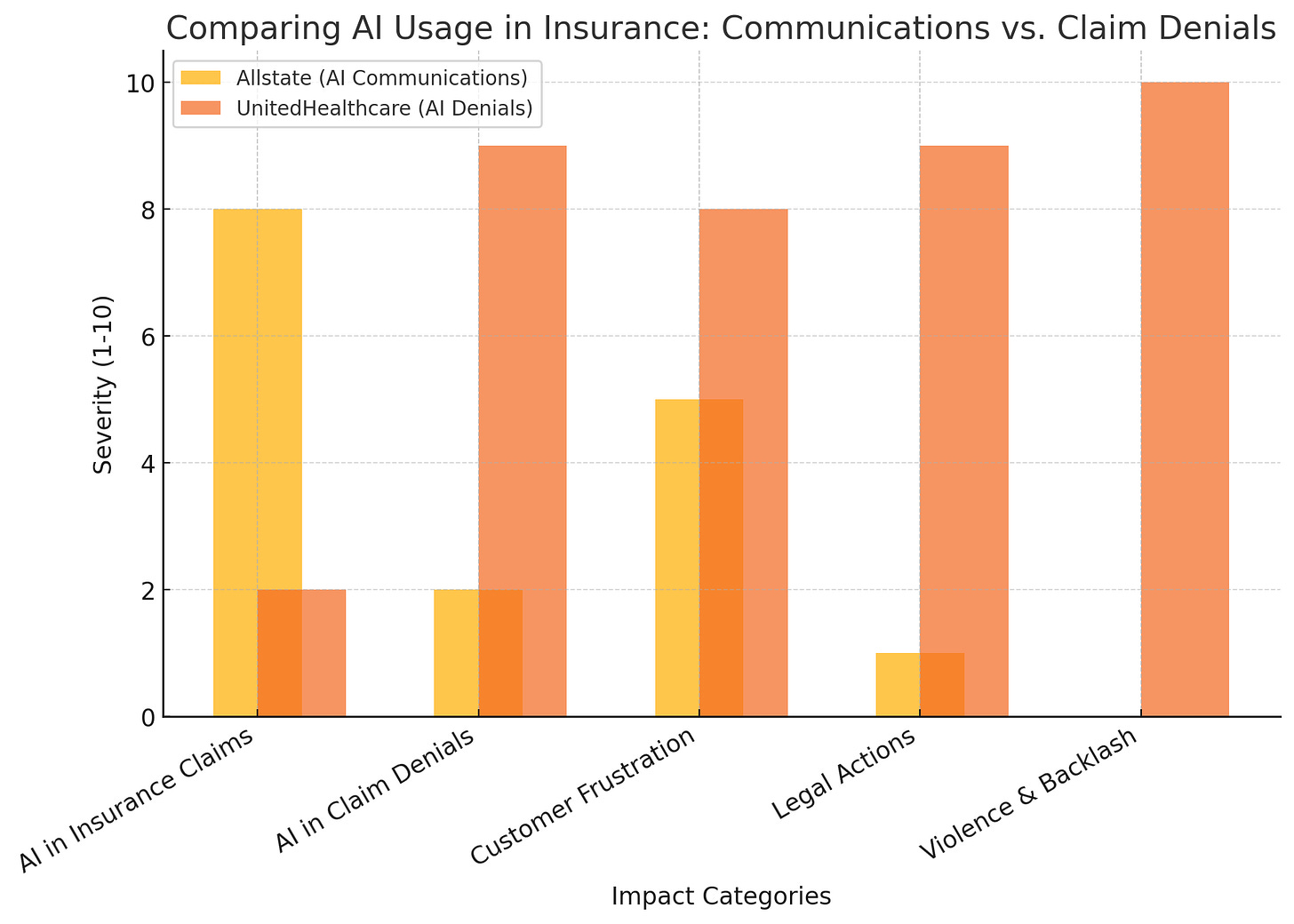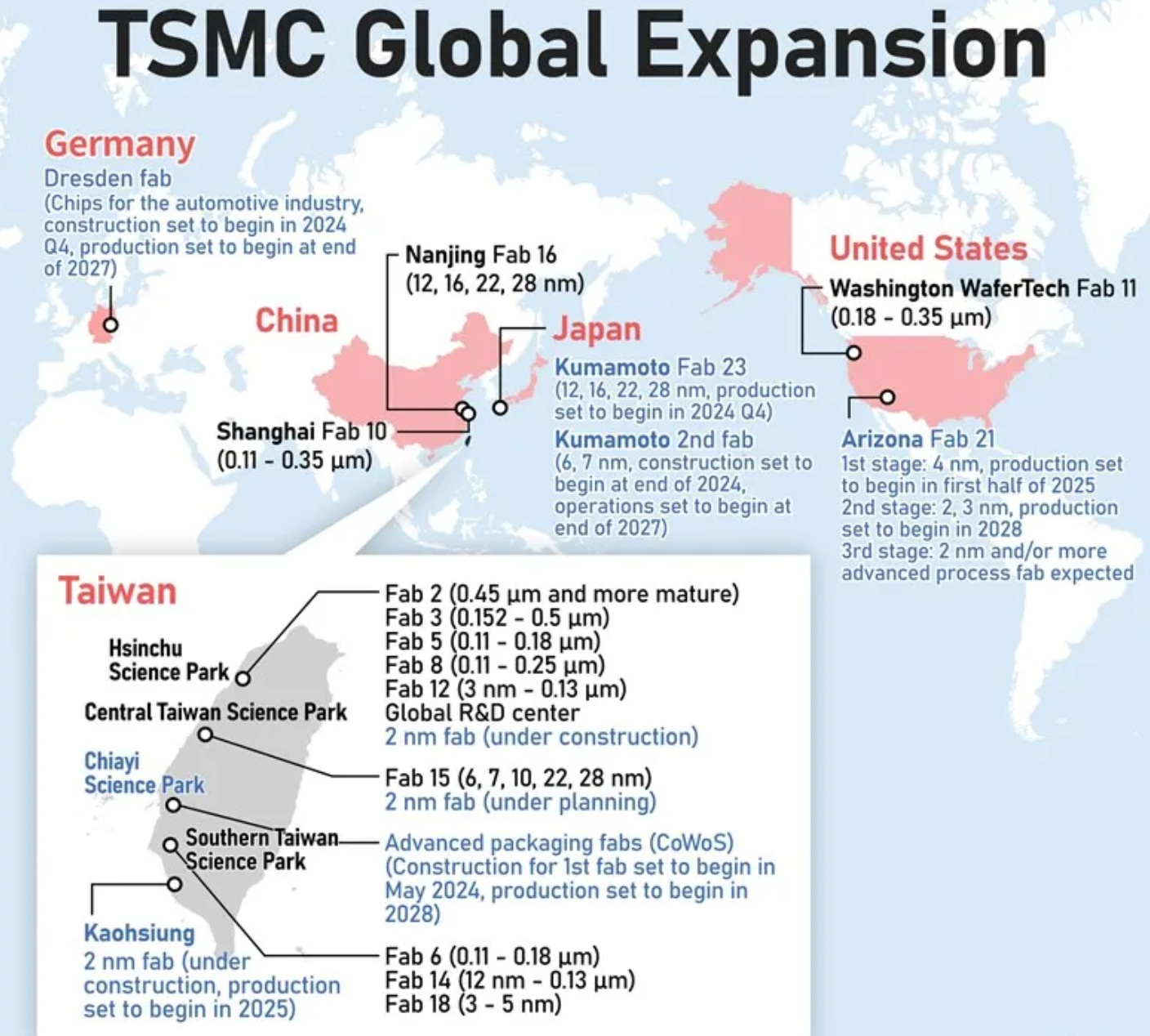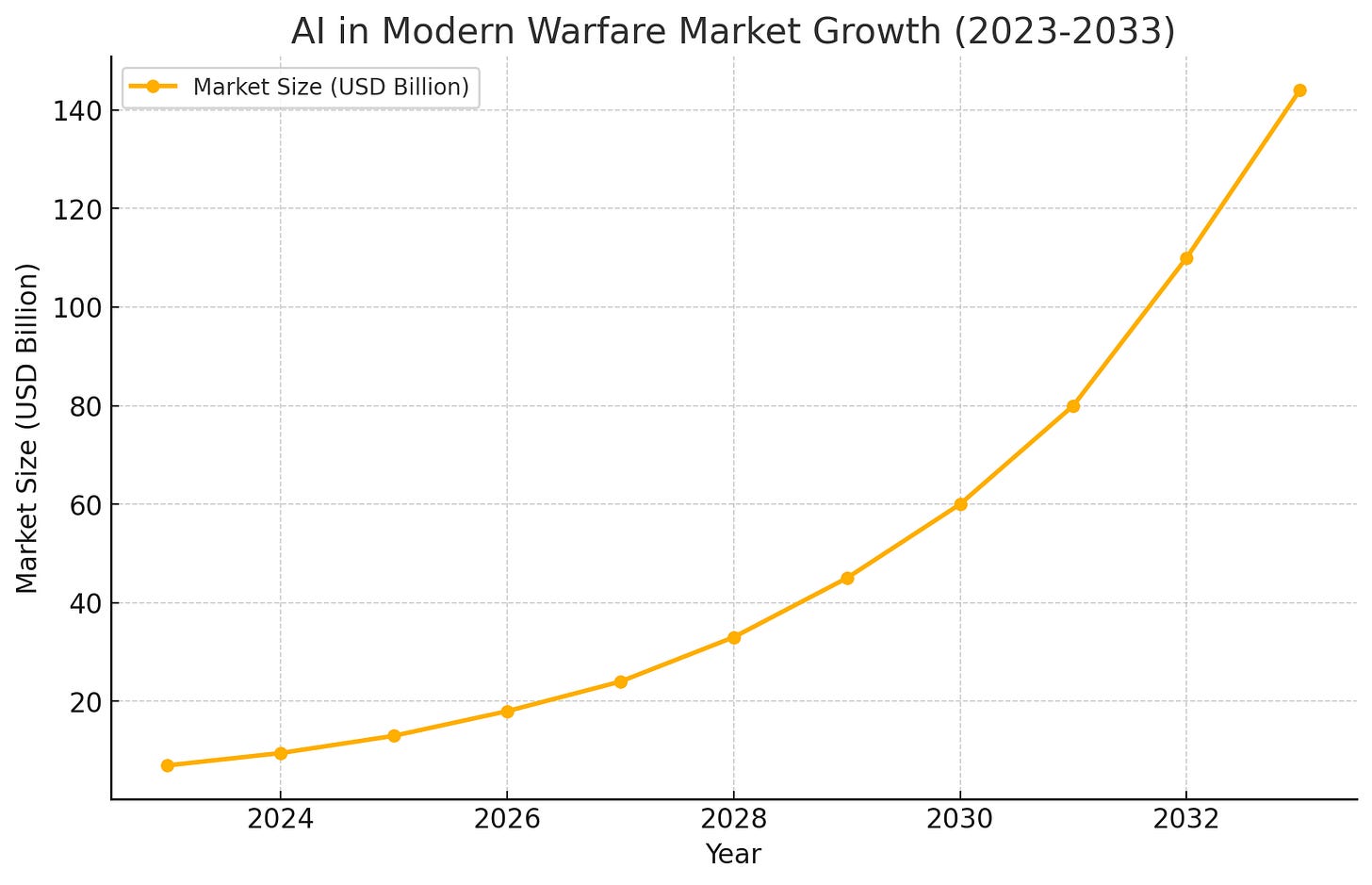- Yaro on AI and Tech Trends
- Posts
- 🪖AI Weapons, Risks, and the Race for AGI May kill us all.
🪖AI Weapons, Risks, and the Race for AGI May kill us all.
Plus: Insurance Companies Double Down on AI, Risking Costly Consequences.
Get in Front of 50k Tech Leaders: Grow With Us
Happy Valentines Fellows, Today we discussed how the EU scales back AI regulations to stay competitive, while most AI companies remove restrictions on AI weapons—fueling an arms race alongside the push for AGI. Meanwhile, insurance companies continue using AI to make critical decisions impacting millions, and Taiwan strengthens cooperation with the U.S. under mounting pressure.
Looking forward to your thoughts—enjoy your weekend!
Demis Hassabis on AI Risks and the Race for AGI.
Insurance Companies Double Down on AI, Risking Costly Consequences.
Taiwan Boosts U.S. Investment Amid Threats and Chip Industry Pressure.
🧰 AI Tools
📰 News and Trends.
Insurance Companies Double Down on AI, Risking Costly Consequences.

The use of AI in industries like insurance can quickly turn disastrous when profit-driven automation replaces human judgment, as illustrated by both Allstate's AI-generated claims communication and UnitedHealthcare's AI-driven claim denials.
Allstate's shift to AI-written communications, though framed as an improvement in customer experience, foreshadows the potential for AI to take over more critical decision-making roles. While Allstate claims human oversight remains, history shows that companies often move toward fully automated processes once AI is in place, which could lead to customer frustrations or wrongful denials in the future.
UnitedHealthcare's case provides a chilling example of what happens when AI is weaponized against customers. The company's nH Predict algorithm, which allegedly denied claims at a 90% error rate, contributed to life-altering consequences for patients, potentially costing lives. The revelation of its role in systematically overriding doctor-approved treatments has sparked widespread outrage, culminating in violent backlash.
Both cases highlight the dangers of unchecked AI in industries where human well-being is at stake. When AI is prioritized for efficiency and cost-cutting rather than ethical decision-making, it can escalate from mere frustration to catastrophic harm. The industry’s reliance on AI—without proper accountability—could lead to public outrage, lawsuits, and even extreme retaliatory actions, as seen in the UnitedHealthcare CEO's murder.
Ultimately, while AI can improve efficiency, its use in sensitive sectors like healthcare and insurance must be handled with extreme caution. The Allstate and UnitedHealthcare examples serve as warnings that replacing human empathy and oversight with automated systems can create a crisis of trust—one that, if left unchecked, could have dire consequences.
Voted "Best Whiskey Gift Of The Year" by Men's Gear.
Blind Barrels connects craft spirit lovers with rare craft bottles from across the country through double-blind tasting experiences at home. We’re shining a light on small distilleries & it’s your chance to join us.
Read the Offering information carefully before investing. It contains details of the issuer’s business, risks, charges, expenses, and other information, which should be considered before investing. Obtain a Form C and Offering Memorandum at https://wefunder.com/blind.barrels/
📰 AI News and Trends
Adobe’s AI video generator is now available for everyone allowing anyone to generate five-second video clips at 1080p (TheVerge)
EU scales back tech rules to boost AI investment (FT)
Thomson Reuters Wins First Major AI Copyright Case in the US bringing big implications for the battle between AI and right holders (Wired)
Gemini Advanced can now recall and use your past chats (9to5)
Arm is launching its own chip this year with Meta as a customer (TC)
Musk to Withdraw OpenAI Bid if Board Halts For-Profit Conversion (TheInformation)
🌐 Other Tech news
TikTok is back in the Apple and Google app stores in the U.S. (Fortune)
Tim Cook teases a new Apple launch next week, and it’s probably the iPhone SE (TheVerge)
Coinbase revenue surges more than 130%, driven by postelection crypto rally (CNBC)
Shares for AppLovin, which connects advertisers with mobile-game developers, have increased sevenfold in the past year (WSJ)
Taiwan Boosts U.S. Investment Amid Threats and Chip Industry Pressure.

TSMC Expansion as of April 2024.
Taiwan’s President Lai Ching-te has pledged to increase investment and procurement in the U.S. in response to Donald Trump’s threats of reciprocal tariffs and accusations that Taiwan "stole" America’s semiconductor industry. The U.S. trade deficit with Taiwan grew to $73.9 billion in 2023, driven by strong demand for AI chips, primarily produced by Taiwan Semiconductor Manufacturing Company (TSMC).
Lai defended Taiwan’s role as a semiconductor leader and proposed a global semiconductor democratic supply chain initiative to enhance supply chain resilience rather than complying with Trump’s push to relocate chip manufacturing to the U.S. TSMC has already committed $65 billion to three fabrication plants in Arizona, but Trump has threatened to revoke over $6 billion in subsidies while advocating for even greater domestic chip production.
Taipei, which holds a 6.4% stake in TSMC, sees its semiconductor dominance as crucial for national security and a deterrent against Chinese aggression. While Taiwan is open to further U.S. investments, Lai emphasized the need for balanced negotiations with Washington. In a bid to strengthen U.S. ties, he also pledged to increase Taiwan’s defense spending beyond 3% of GDP. However, he acknowledged that Trump’s trade policies are a major challenge for Taiwan and other global partners.
Our Partners:
RemoteBase - Hire the top 1% of tech talent in the world. We have a thorough multi-step vetting process, that gives you a strong internal community of Front-End, Back-End, Full-Stack, and Dev-Ops engineers. Our clients are matched with the required engineering teams within 24 hours.
OpenVC University - Jumpstart your AI career in 100 days with OpenCV University’s AI Challenge – master AI, Computer Vision, and Deep Learning with a 35% discount!
FRENZ Brainband by Earable - Silence your thoughts and drift into a deeper sleep. —AI-powered, scientifically-backed sleep tech transforming restless nights into restful slumber. Exclusive savings with code 'celis'!*
Demis Hassabis on AI Risks and the Race for AGI.

From market.us
In a recent interview at the AI Action Summit in Paris, Google DeepMind CEO Demis Hassabis emphasized the dangers of treating artificial intelligence development as a competitive race, warning that such an approach could compromise safety protocols. He advocated for international collaboration among governments, corporations, academics, and civil society to establish norms and regulations for AI, noting the challenges of achieving global cooperation, as evidenced by the inconclusive outcomes of the Paris Summit.
Hassabis highlighted the importance of involving a diverse group of stakeholders in AI development to ensure ethical deployment and to consider the societal impacts of advanced AI systems. He also addressed Google's recent policy shift to permit greater military use of its AI technology, stating that any such applications must be carefully evaluated to ensure that the benefits significantly outweigh potential harms. This change reflects a broader trend in Silicon Valley, where tech companies are increasingly engaging in defense contracts amid evolving geopolitical contexts.
The interview underscores the complex balance between innovation, ethical considerations, and international cooperation in the rapidly advancing field of artificial intelligence.
🧰 AI Tools
Download our list of 750+ Tools free here.


Reply